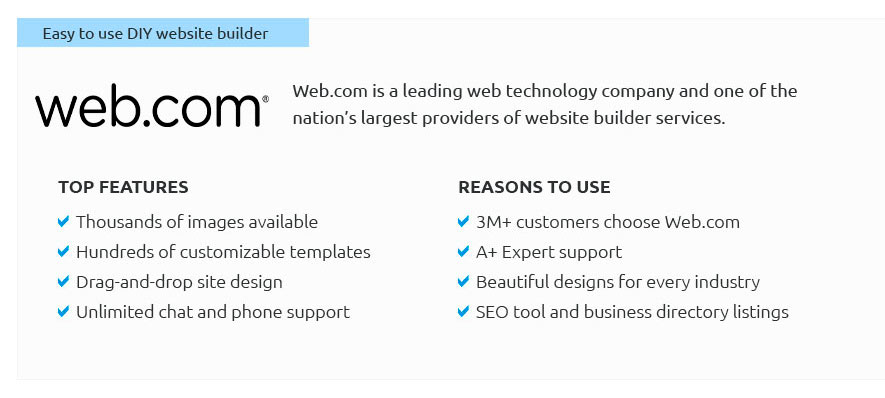 |
 |
 |
 |
|
 |
 |
 |
|
 |
|
 |
 |
|
 |
|
 |
|
 |
 |
The Best Free Website Builders: Navigating Your OptionsIn today's digital age, having a website is no longer a luxury but a necessity for businesses, freelancers, and even hobbyists seeking to establish an online presence. However, the cost of web development can be prohibitive for many. Fortunately, numerous free website builders have emerged as viable solutions, offering a diverse range of tools and features without the hefty price tag. But how do you determine which one is the best fit for your needs? This article delves into some of the most popular free website builders, weighing their pros and cons to help you make an informed decision. Wix is often heralded as a top choice for those seeking a free website builder. Its intuitive drag-and-drop interface allows even the most technically challenged users to create visually appealing websites. One of the standout features of Wix is its vast selection of templates, which cater to a variety of industries and personal styles. However, while Wix offers a free plan, it's important to note that it comes with Wix branding and limited storage and bandwidth. For those willing to upgrade, the premium plans provide more flexibility and enhanced features. Squarespace, known for its stunning design templates, unfortunately does not offer a free plan, which might steer budget-conscious users away. Yet, it's worth mentioning for those considering investing in their online presence eventually, as it combines aesthetics with functionality seamlessly. Then there's WordPress.com, a robust platform that powers a significant portion of the internet. Its free plan is particularly attractive to bloggers and small business owners. WordPress.com offers a range of themes and a strong community support system. However, customization options are somewhat limited unless you opt for a paid plan, which unlocks additional features and allows for custom domain names. For those prioritizing simplicity and speed, Weebly is an excellent contender. It provides a straightforward building experience with a user-friendly interface. The free plan includes a decent selection of themes and a reliable support system. Like many free services, Weebly's free plan includes ads, which might be a drawback for some users. Another worthy mention is Site123, which markets itself as the easiest free website builder. It lives up to its promise by offering a streamlined setup process, making it ideal for those who want to get a site up and running quickly. The downside? Customization is limited compared to its competitors, which might be a deal-breaker for those seeking more control over their site's design. Lastly, there's Google Sites, a lesser-known but highly effective tool for creating simple websites. It's particularly appealing for educational and collaborative projects due to its integration with other Google services. However, its design capabilities are relatively basic, which could be limiting for more complex projects. In conclusion, while each of these free website builders has its unique strengths, the best choice ultimately depends on your specific needs and goals. Are you seeking design flexibility, ease of use, or scalability? Understanding these factors will guide you in selecting the most suitable platform. As with any free service, there are trade-offs, often involving limitations on features and the presence of ads. Nevertheless, these tools provide a valuable starting point for establishing an online presence without a significant financial investment. https://www.expertmarket.com/au/website-builders/best-free-website-builder
We tested free website builders to find out what the best ones are for the average user. Top of the list are Wix and GoDaddy. https://www.wix.com/
Pick a platform. Sign up for a secure and reliable free website builder like Wix. - Plan out your website. Map out your goals, site structure and who your ... https://www.godaddy.com/en-ca/websites/website-builder
GoDaddy Website Builder - Your free website is just the beginning. - How to create a free website. - A plan for every plan. - Every Website Builder plan includes: ...
|